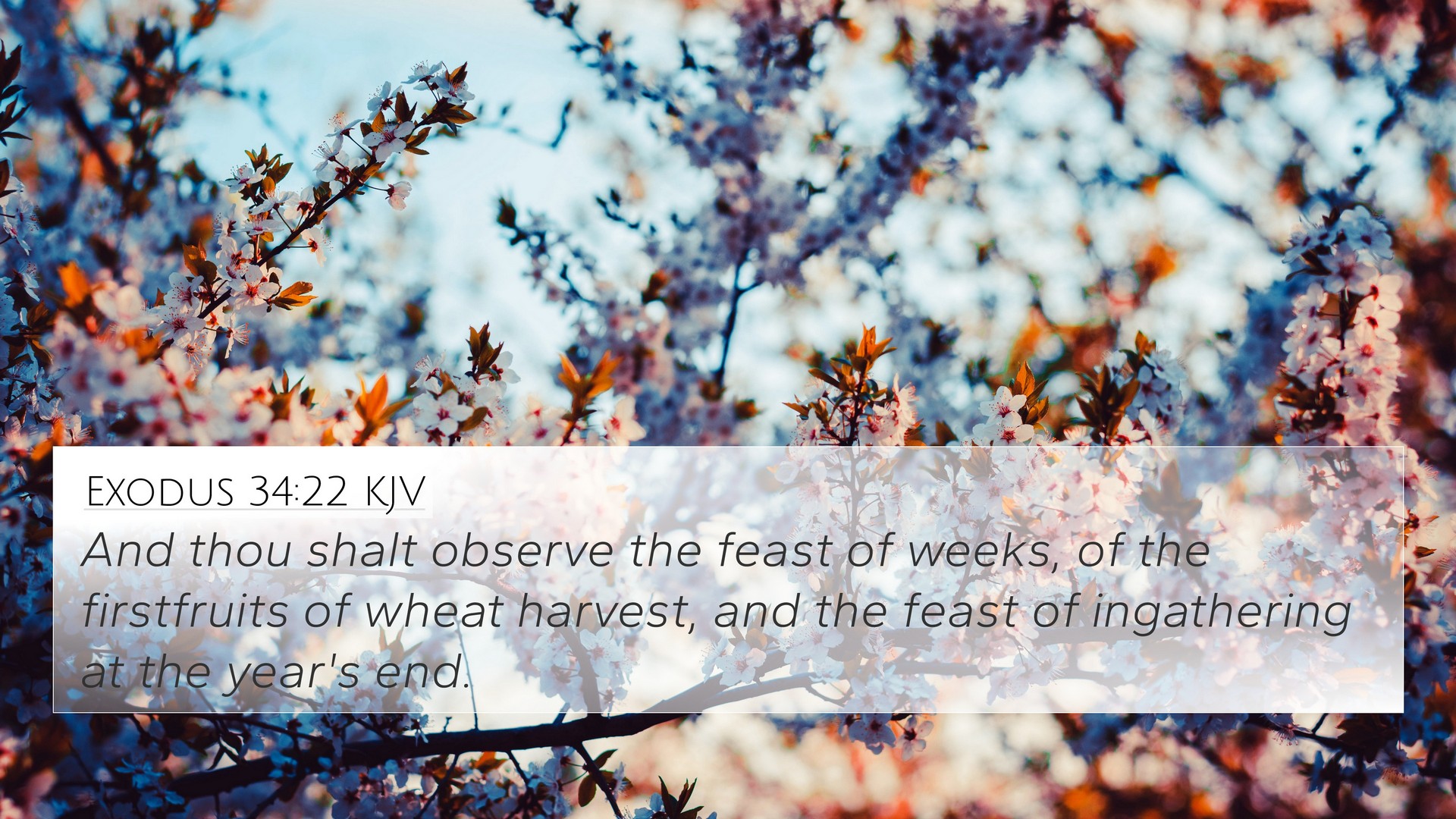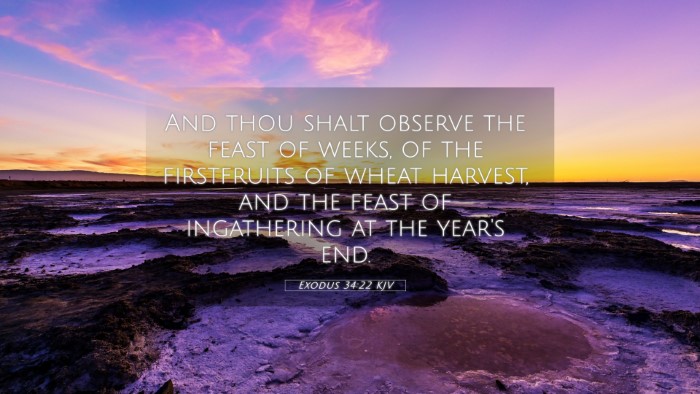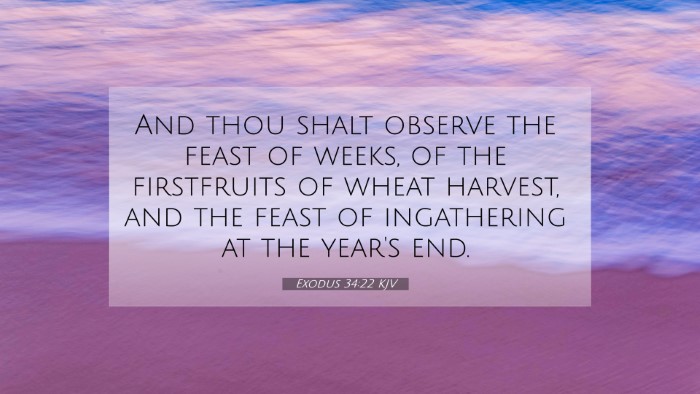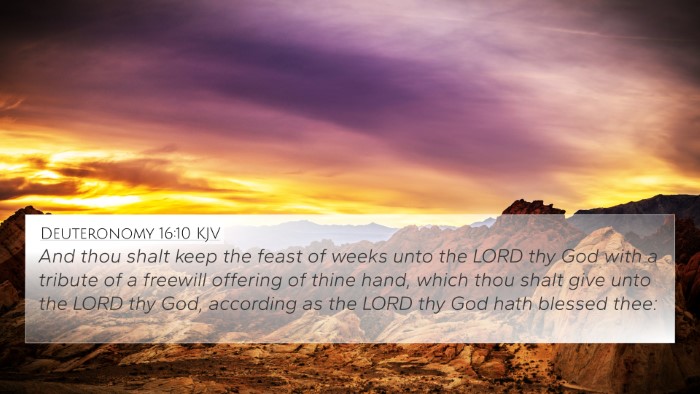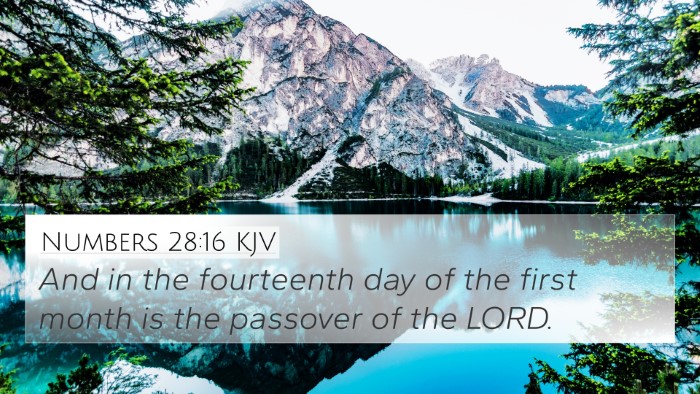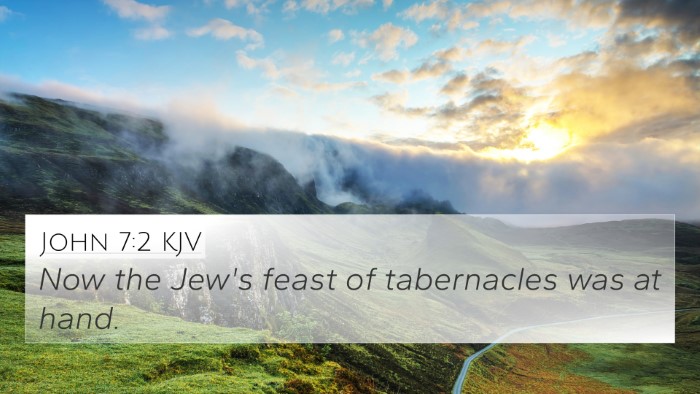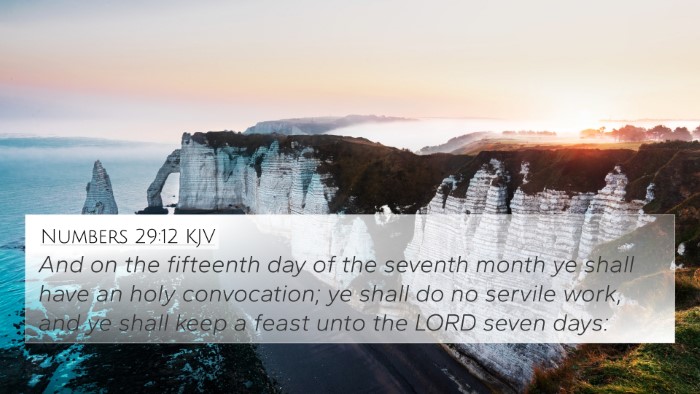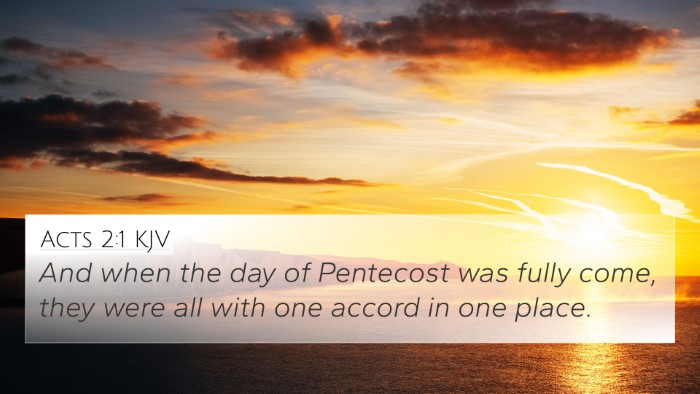Understanding Exodus 34:22
Exodus 34:22 states: "And you shall observe the Feast of Weeks, the firstfruits of wheat harvest, and the Feast of Ingathering at the year's end." This verse emphasizes the governing of sacred festivals and their significance in Israel's agricultural and spiritual life.
Meaning and Significance
The verse encapsulates several important themes in the life of the Israelites:
- Divine Commandment: God commands the observance of specific feasts, underscoring His sovereignty and the importance of worship.
- Harvest Celebration: The Feast of Weeks (Shavuot) celebrates the first fruits of the harvest, symbolizing gratitude and acknowledgment of God’s blessings.
- Community Gathering: The mention of the Feast of Ingathering highlights the communal aspect of worship and gratitude for the year’s provisions.
Insights from Public Domain Commentaries
Matthew Henry's Commentary
Matthew Henry notes that this verse conveys the significance of timing and divine appointment in religious observance. Henry emphasizes the importance of the festivals in cultivating a spirit of thankfulness as they coincide with harvest seasons. He posits that these festivals were meant to remind the people of their reliance on God for sustenance.
Albert Barnes' Notes
Albert Barnes comments on the “Feast of Weeks” as a celebration of the giving of the law, thus linking it not only to agricultural pursuits but also to a historical and spiritual remembrance. He highlights the necessity of participation and the acknowledgment of God’s provision in establishing a relationship between God and His people.
Adam Clarke's Commentary
Adam Clarke further explains the importance of the Feast of Ingathering (Tabernacles) as it symbolizes the final harvest of the year, marking a time of reflection and celebration. Clarke notes that it serves as a reminder of God’s faithfulness and a call for communal recognition of His blessings throughout the year.
Bible Verse Cross-References
This verse has several connections to other scriptures that enhance its understanding and application:
- Leviticus 23:10-16: Details the specific instructions for each of the feasts mentioned.
- Deuteronomy 16:9-10: Discusses the counting of the days leading to the Feast of Weeks.
- Numbers 28:26: Affirms the observance of the Feast of Weeks.
- 2 Chronicles 8:13: References the importance of observing feasts as outlined in the Law of Moses.
- Acts 2:1: Points to the fulfillment of the Feast of Weeks at the coming of the Holy Spirit.
- James 1:17: Speaks to the goodness and providence of God, which is a theme of the harvest festivals.
- 1 Corinthians 15:20: Links the themes of first fruits and resurrection, showing a New Testament connection.
Connecting Biblical Themes
In analyzing Exodus 34:22, we see connections between the Old Testament laws and New Testament teachings. The observance of these feasts calls believers today to reflect on:
- The importance of gratitude for God's provisions in life.
- The significance of community and shared faith experiences.
- The continuity of God’s faithfulness throughout history.
Cross-Referencing Biblical Texts
Understanding how to engage in cross-referencing Bible texts can deepen one's biblical knowledge. Here are tools and methods to consider:
- Bible Concordance: A helpful tool for locating verses that connect to specific themes or keywords.
- Cross-Reference Bible Study: Methodologies that facilitate the exploration of linked themes across different scriptures.
- Bible Reference Resources: Using commentaries and study guides to gain deeper insights into scriptural passages.
Conclusion
Exodus 34:22 is more than a commandment; it is a profound cultural and spiritual reference point for understanding God's relationship with Israel. The observance of these feasts connects generations of believers, reflecting on God's provision and the importance of communal worship.
As we engage with this scripture and its numerous cross-references, we are invited into a richer understanding of the Bible, encouraging continuous study and deeper faith.
